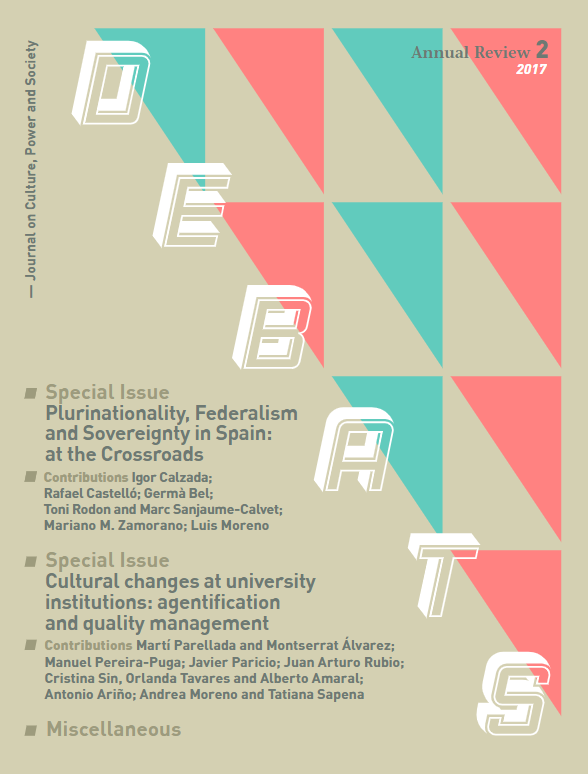Taking stock of changes in quality assurance in Portuguese higher education between 2007 and 2015
Resum
This article documents the changes that occurred in Portugal after the adoption of the new higher education quality assurance framework in 2007. The most obvious results of the new higher education evaluation and accreditation agency’s actions can be observed primarily at the level of teaching‑program provision. Accreditation activities resulted in a 40% reduction in the supply of the courses on offer between 2009 and 2015 (Sin et al., 2016). This reduction was felt mainly in private institutions, which confirms that substandard programmes were more common in the private sector. Another consequence was that institutions started to take a more formal and systematic approach to quality by implementing internal quality assurance systems. These systems were driven by a logic of accountability rather than by genuine self‑reflection aiming to engage all those involved and which would have led to improvement. Therefore, it appears that most academics perceive internal quality assurance to have had negative effects on teaching and learning, mainly because of increased bureaucracy, while the positive effects are still perceived as being relatively modest.Descàrregues
Descàrregues
Publicades
Com citar
Número
Secció
Llicència
Sense perjudici del que disposa l'article 52 de la Llei 22/1987 d'11 de novembre de Propietat Intel·lectual, BOE del 17 de novembre de 1987, i conforme a aquest, els/les autors o autores cedeix/en a títol gratuït els seus drets d'edició, publicació, distribució i venda sobre l'article, per tal que siga publicat a Debats. Revista sobre cultura, poder i societat.
Debats. Revista de cultura, poder i societat es publica sota el sistema de llicències Creative Commons segons la modalitat “Reconeixement – NoComercial (by-nc): Es permet la generació d’obres derivades sempre que no se’n faça un ús comercial. Tampoc no es pot fer servir l’obra original amb finalitats comercials”.
Així, quan l’autor/a envia la seva col·laboració, accepta explícitament aquesta cessió de drets d’edició i de publicació. Igualment autoritza Debats. Revista de cultura, poder i societat la inclusió del seu treball en un fascicle de la revista perquè es puga distribuir i vendre.











